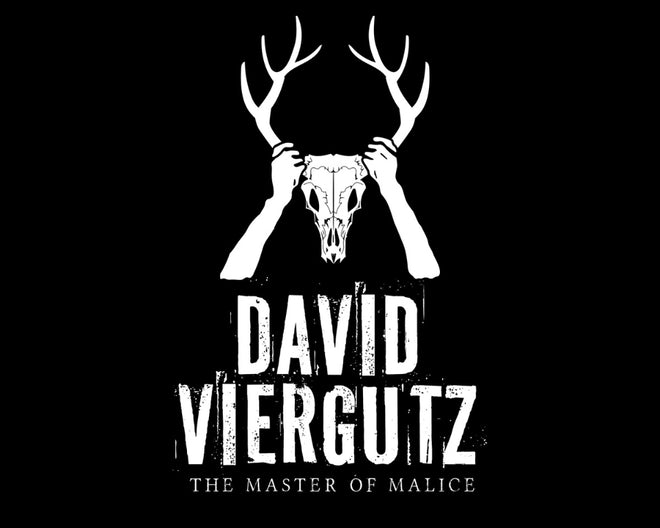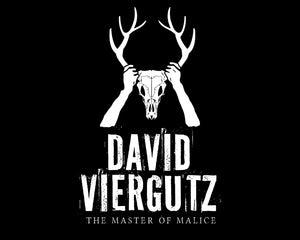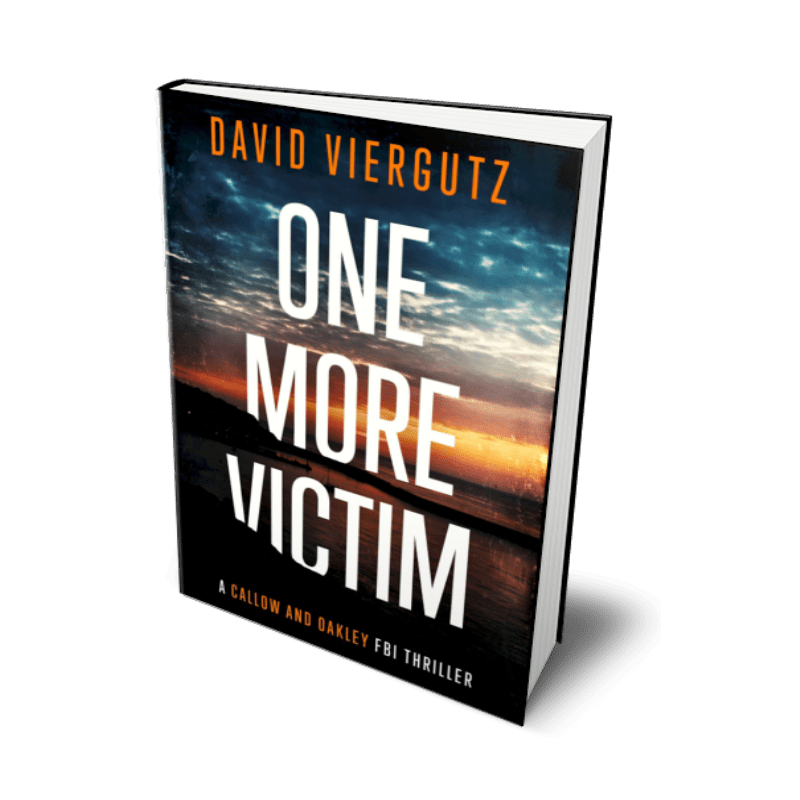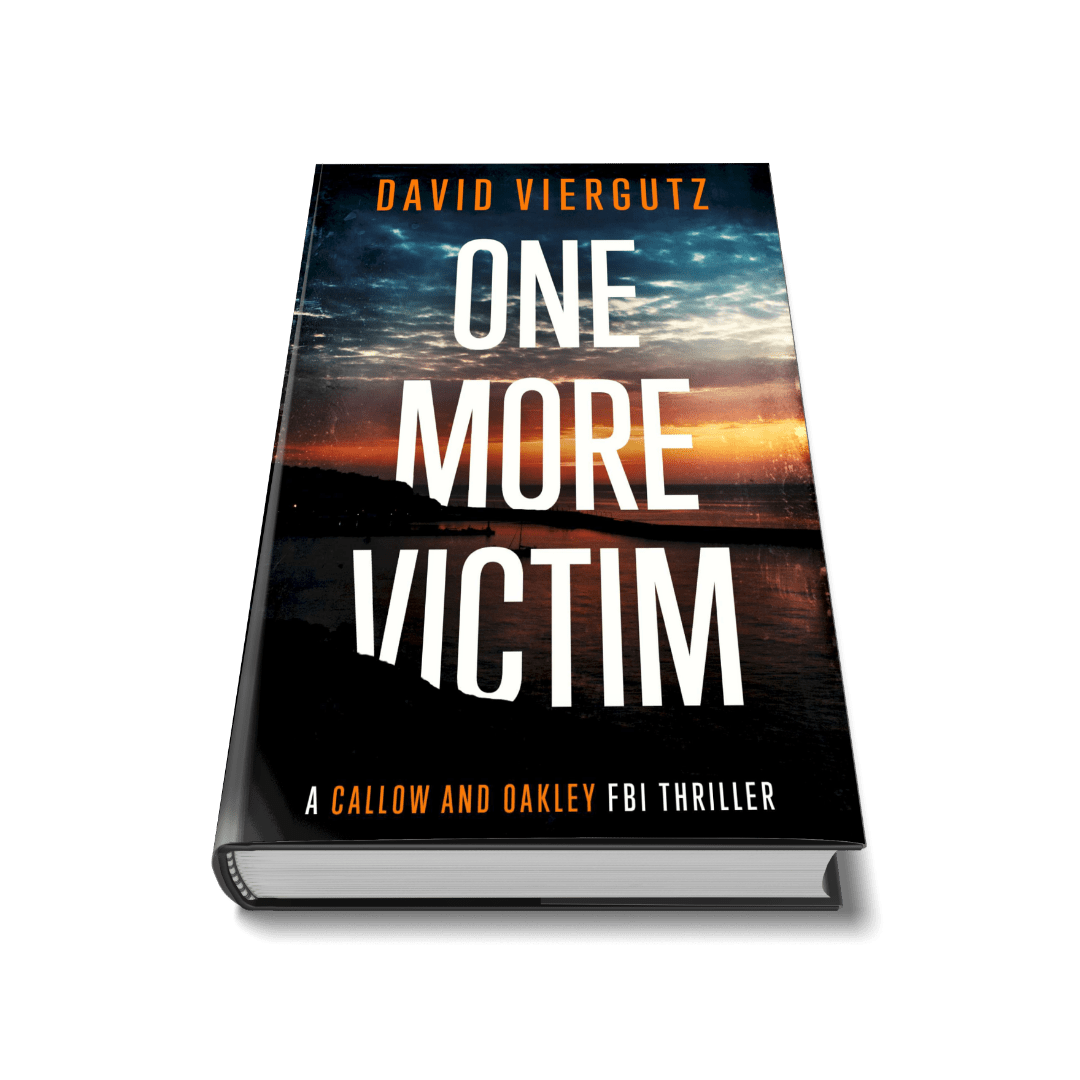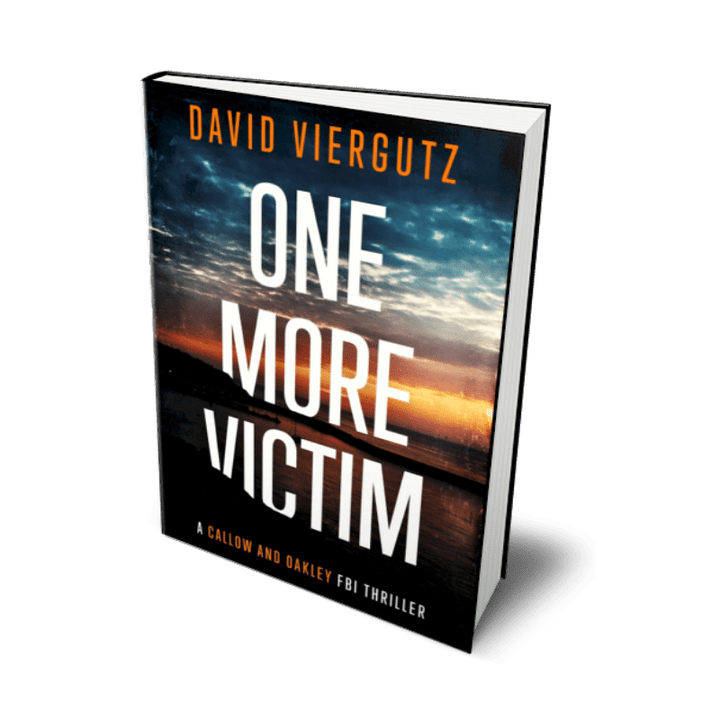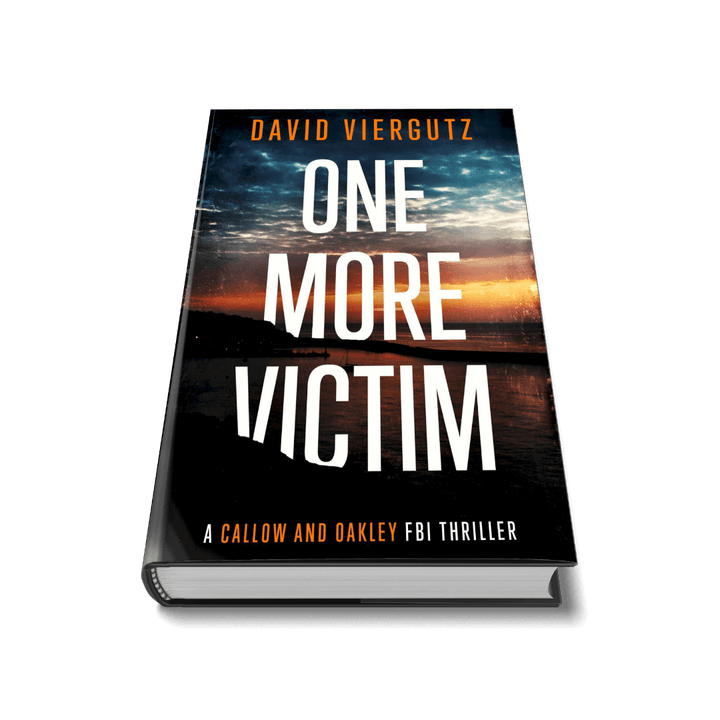One More Victim (Paperback)
- In stock, ready to ship
- Inventory on the way
BOOK 1 OF THE CALLOW AND OAKLEY FBI THRILLER SERIES.
Killers don’t play by the rules…
After nearly dying in the line of duty, the FBI’s top criminal profiler Genevieve Callow contemplates a quieter life while struggling with survivor’s guilt.
She’s reminded every day that while she was fighting for her life, another predator was stalking the night in her hometown.
The Icebox Killer.
She knows now that home isn’t safe.
But she’s haunted, tired, barely recovered. There are other agents on the killer’s tail. They should be able to catch him.
Or can it only be her?
Now, in one brazen act, the killer has called out to her by name, taunting her―a game of cat and mouse.
Callow has a choice: Run and hide, or do what she does best and catch a maniac before he strikes again.
Even if facing him means the Icebox Killer claims one more victim …
| Paperback | 322 pages |
| Dimensions | 5 x 0.81 x 8 inches |
| ISBN | 979-8986239095 |
| Publication date | April 28, 2023 |
| Publisher | The Nightmare Engine |
Media Mail Shipping: Orders are NOT insured and can take 14 business days to be delivered to you. We ship within 5 business days.
First Class Shipping: Orders are insured and can take 3-5 business days to be delivered to you. We ship within 5 business days.
Priority Shipping: Orders are insured (up to $50) and take 1-3 business days to be delivered to you. We ship within 5 business days. Shipping time might vary depending on location, shipment method and other factors.
Shipping cost:
Orders over $69 will have free shipping. Orders under $69 will be charged for shipping depending on your chosen delivery method. Full price will be displayed at checkout.
Shipping Fees:
Shipping fees are non-refundable. return an item, please email us at david@davidviergutz.com
Chapter One
Her knuckles white, Genevieve Callow—Callow to her friends, Jenny to a chosen few—gripped the steering wheel of her aging 2004 Chevy Tahoe.
The Virginia sun forced its way through the front windshield, cooking her forearms and raising the temperature in the vehicle until Callow was swaddled in it. The road flew by, a superhighway of white dashed lines, with drivers hunched forward in their seats or sipping on steaming coffee from paper cups.
Callow’s head drooped against the heavy, comforting rays of the sun. Her eyelids felt weighed down by cinderblocks, and her breathing became deep and rhythmic.
Callow was ripped from her stupor by the blaring squawk of a gold Camry as it flew by the right side of her Tahoe. Her stomach somersaulted and settled in knots, her heart rate launched into a breakneck pace, and she was overtaken by a hyper-alertness that only came when a person’s survival instincts were kicked into overdrive.
The Camry pulled ahead in the outside lane.
Callow felt her face flush and the back of her legs grow warm with sweat. She shifted uneasily in the seat as she waved the Camry’s driver off, hoping the gesture would convey her apology.
She’d barely been on the turnpike for twenty-five minutes.
In truth, she had faded away for a few moments, lost in some memory somewhere, into a purgatory-like chasm somewhere between asleep and awake. Fighting off sleep was like pulling a snake out of a burrow; as soon as you had a grip, some sense of reality, it wriggled away and left you in dreamland.
Callow cranked the volume. Two of the Tahoe’s speakers were blown, leaving only the rear speakers functioning, creating a hollow effect that reminded her of being underwater; like the sound was far away, behind a door. It didn’t help with her exhaustion at all.
At Quantico, Callow had learned there were two types of tired: physical and emotional. Physical exhaustion came from lack of sleep or after strenuous exercise. Emotional exhaustion came from great mental turmoil that required focus and calibration to work through and comprehend. Most people who say they need to “work through something” are most likely emotionally exhausted.
Genevieve Callow was working through something.
She sighed and rolled down the driver’s side window, letting the wind whip through her hair. That would be enough to stave off the nods for now.
A plastic bag on the passenger seat fluttered from the incoming breeze. Callow eyed a half-eaten sandwich—the same type of sandwich from the same shop she and her partner, Marcus Oakley, had eaten while on a case not two months prior. Hunting down another similar sandwich was turning into an adventure. The drive was a twenty-four-mile round trip—and the sandwich wasn’t even very good.
The turkey was bland and tasteless, the cheese slightly sour, and the bread had an unidentifiable crunch to it.
The sandwich was an excuse to drive; the airport, a destination.
Genevieve Callow was working through something.
But unlike those who manage to decompress from their memories, Callow was trapped by hers. And like the subject of the memory, it had just tried to kill her.
Not with its hands pressing the life from her throat, but through the emotional residue it left behind that could peel her attention away from reality in an instant and run her off the road.
He can’t hurt you anymore. You caught him. It’s over.
But it didn’t feel over.
Three weeks ago, Callow had nearly lost her life to the serial killer she’d been tracking. To compensate, her superiors at the FBI had given her three weeks off.
She’d taken one.
Upon returning to the fanfare from her co-workers, complete with the mandatory cake, balloons, and a medal, she had also been slapped with a new assignment. Callow didn’t buy it. No matter how ASAC Jedediah Gold, her friend and mentor, dressed the position up as an “opportunity,” she saw the assignment clearly for what it was—a distraction.
There was a reason Callow had only taken a week off. Her work wasn’t done.
She couldn’t focus on a new assignment―not when another unsolved case weighed heavily on her mind.
A case where the killer called out to her by name.
A dead-end case that only she could solve.
Her latest obsession.
Callow shifted uneasily in her seat, her rear going numb, and tapped her foot anxiously. With her other foot, she pressed the gas pedal, inching closer and closer to I-77.
Her eyes narrowed as rays of orange and yellow sunlight blasted under the sun visor, growing so bright that all Callow could concentrate on was the space between her hands on the steering wheel where the leather was cracked and worn. It was all a bright slipstream.
Once her eyes adjusted, Callow looked out over the highway. With the absence of any cars, it resembled more of a deserted runway. There was no Camry. There was only the road.
She felt her heart racing again. A wild recklessness washed over her; the same inexplicable insanity skydivers must surely feel moments before leaping from the plane and testing fate.
She yearned to feel something.
Callow jerked the radio knob sideways until it was five notches from full blast and mashed the gas pedal. Hard rock filled the SUV, but blood pounded in her ears, drowning out all other noise. The highway seemed to stretch into the distance, long and narrow.
The screaming vocals over the speakers became unintelligible, seeming to meld with the roar of the engine as Callow pushed the speedometer further.
Ninety. Ninety-five. One hundred.
She was a blur, her eyes barely able to keep up with the speed. A satisfied smile spread across her face as adrenaline poured into her veins like a shot of nitrous. For a moment, she thought she might have laughed.
But as she pushed the Tahoe toward one hundred and twenty, the vehicle began to veer to the left, buzzing over the lane indicators. Once again, that sinking feeling of falling tore through her stomach, and she backed off the accelerator.
Heaving, huffing, she sucked frigid, recirculated air between her teeth, down her throat, and into her lungs.
Why did I just do that?
It wasn’t insane―it was just stupid.
To feel alive, Jenny.
A familiar voice answered her thoughts. The tone reminded Callow of her father scolding her.
You died in the mud in El Paso, Jenny. You died—you just won’t admit it. Now, you can’t feel anything.
But she didn’t feel dead. She felt tired―no, exhausted. Emotionally and physically.
At least the dead have a reprieve from the pains of the living.
The Tahoe continued to coast, and once the SUV was back within the speed limit, she pressed on the accelerator again. With the large green road sign drawing closer, she blinked rapidly, trying to make out the letters. She surely must have missed her turnoff after her little stunt.
Suddenly, she became acutely aware that she was not alone on the deserted strip of highway. She could see cars―red, blue, gray, all staggered behind her in the other lanes. She had the feeling they had all recently moved over.
She swore, then finally dialed back the music as one car approached quickly from behind. She could make out a black grille guard, a white hood, and an ultralight, thin light bar on its roof.
Now you’ll get it, Jenny. He’ll impound your car for reckless driving.
A parade of red and blue lights ignited in her mirrors, and a siren chirped twice. Callow flipped on her blinker and slowly drifted toward the left-hand shoulder. She squeezed over to the left as far as possible, hoping the officer had room and wouldn’t be too angry about having to walk the thin line between life and death as cars screamed by.
She came to a stop directly in front of a speed limit sign. 65 MPH.
She felt completely out of place. The flashing headlights and light bar seemed surreal, as if they were part of the dreamlike state she’d been in a few miles back.
But this was no memory. This was real.
Real police. Real speed. Real consequences.
Callow rolled down the window before locking her head forward, her hands pressed firmly against the steering wheel. Her heart performed some sort of Riverdance against her chest. Her palms began to sweat, and her foot tapped along to the beat of her heart.
She couldn't stop it. The rhythm created an uncomfortable shake in the car, the Tahoe’s aging suspension creaking as she fought against herself, praying that the officer might be lenient.
But why would he? She deserved whatever was coming.
Ticket. Impound. Jail. It was all her fault.
Callow had no good excuse for speeding like a madman.
You did it to feel alive, right, Jenny? You died. Tell him you died.
The officer approached on the left, squeezing between the SUV and the Jersey barriers. There wasn’t much room on the shoulder, and Callow could hear the many accoutrements on his duty belt clanging, rustling, squeaking. His footsteps crunched on wayward stones and long pummeled car parts left over from crash after crash, pounded by the incessant traffic until they were no more distinguishable than the gravel kicked up by large trucks.
Callow could feel the officer just outside her door—then came the unmistakable odor of sweaty, sunbaked polyester. She could smell the salty remains of winter on his water-soaked boots and the hint of gasoline on his sleeve. The smell of frigid winter cold stood out the most. The snow had mostly melted, leaving a slushy, muddy residue.
The officer cleared his throat.
Callow turned her head slowly, stifling a gasp by clamping her mouth shut just in time, resulting in a painful knot that built underneath her chin like a sneeze she had forced back. The officer was tall, standing nearly a head above the roof of the Tahoe. The brim of his campaign hat shadowed his face, but his prominent chin and thick lips defined his chiseled face. He had to be in his fifties, his light blond hair trimmed neatly above the ears protruded and suggested he combed it lazily to the side. He wasn’t a young trooper. Retirement seemed to be quickly approaching.
A thin bead of sweat ran down his cheek.
“Good afternoon, ma'am.” His voice was deep and melodious. “My name is Trooper Tony Mackeras with the Virginia State Police. Do you know why I stopped you today?
“I do.”
“And what reason might that be?”
Callow considered how to reply, worried about incriminating herself, but the admission of guilt was irrelevant. She was caught, and she didn't plan on fighting the consequences.
“I drifted off,” she conceded. “When I realized, I got spooked and overcompensated. I know it doesn’t excuse it, but I've been through a lot these last few days. Few weeks, actually. I'm sorry for putting you in this position.”
The trooper cast a suspicious eye around the inside of the car. He looked past Callow like she didn't exist, then his eyes met hers. They were cool gray, almost like stone.
“‘Drifted off?’ I've been following you for miles. You didn't just ‘drift off,’ ma'am—you were driving at a speed of up to nearly 110 miles per hour, according to my radar. Most of the time when people drift off, they get slower and nearly wreck out. But you didn't slow—you sped up, crossed the center line, and damn nearly crashed into a Camry. Some might call this reckless driving; an arrestable offense in the Commonwealth of Virginia. Now, if you would, could you please hand me your license and insurance?”
Callow’s eyes darted to the glovebox, where her service issued Glock 19 and her FBI badge and identification sat neatly next to each other. She glanced back at the trooper, looking to formulate the words needed to explain herself―and feeling exactly like a child in the principal’s office.
“They’re in the glovebox,” she said. “Along with my pistol and my credentials.”
The trooper raised an eyebrow. “Are you a cop?”
Callow nodded. “Yes, sir. FBI.”
The trooper’s hard façade melted away. “My kids call me ‘sir.’ Call me Tony. Grab your badge and ID and I'll get you out of here.” His eyes darted sternly to the rubberneckers cruising past as he spoke, then he frowned. “You said you've been through a lot. Tell me about that. Does that have anything to do with what's going on here?”
Regardless of the trooper’s generosity, Callow didn’t feel any more at ease. She had prepared herself mentally for a ticket, or worse. She hadn’t prepared herself to open up about her recent trauma.
Struggling to meet the man’s gaze, she reached into the glovebox for her identification and badge. The officer stood up, stretching his back as a cohort of cars rushed by.
“I’m part of the Behavioral Analysis Unit,” Callow offered, holding out her information. “We’re in charge of profiling serial killers.”
The officer took her credentials and looked them over. “Callow? As in Genevieve Callow? You’re the analyst … sorry, the agent who caved the face in of the Red Mud River Killer. Shit, I heard he nearly killed you.”
Callow pulled down the scarf around her neck to expose the green and brown bruising that remained there. Her tormentor’s mark―bruising that followed the shape of fingers.
Callow realized the trooper, Tony, was only asking her name as a courtesy. Her name had been plastered all over the local news, and conversations about her encounter with the Red Mud River Killer followed her everywhere. The scarf did little to stop the hushed whispers behind her back. The entire Bureau knew who she was at this point. Recognized her, too. She’d contemplated cutting off her hair, but she hadn’t been able to bring herself to do it. A moment of clarity had told her that only time would make the difference.
Time, and someone else seizing the limelight.
But there was another image portrayed of the events with the killer―one that didn’t garnish pats on the back, but rather nervous glances. When Callow had apprehended the killer, she had been accompanied by a uniformed officer, and his body cam footage had revealed exactly what she’d had to do to survive.
That, too, had been plastered all over the news―blood and all.
“Heard you bashed his face in; left him sucking teeth. But you also saved that El Paso police officer’s life. I can’t believe the media tried to crucify you for leaving that asshole’s prosthetic in the mud,” Tony continued. “One girl was literally hog-tied a few hundred yards away. The officer’s leg was caught in a bear trap, and the killer nearly ripped your head clean off―and they want to get mad over a prosthetic?”
“I’m just trying to forget it,” Callow replied. With a long exhale, she sat back in her seat and dropped her hands from the steering wheel.
“Survivor’s guilt?” Tony asked, rapping on the roof of the Tahoe.
“What?” Callow asked, facing him.
“Survivor’s guilt. I can see it all over your face. I was in a shooting when I first got started, nearly twenty years ago. Three months in. My training officer didn’t make it. I did. Are you seeing a grief counselor?”
“No.”
“Well, this little stunt won’t fix the hurt. It might go away for a bit. You’ll try skydiving. Then rock climbing. Then something else equally dangerous and stupid. If you survive all that, you’ll eventually come around to looking for answers at the bottom of a bottle.”
For reasons unknown, tears swelled in Callow’s eyes. She could just imagine the new trooper, young and baby-faced, wasting away in his misery. For a moment, she was the trooper. In brief flashes, she saw herself mountain biking, then skydiving, then going one hundred and twenty down the highway. But instead of smiling, her face was twisted into a baleful mourn — an ugly, speechless cry. The tears fell down her cheeks, leaving salty streams in her faint trace of makeup. She sniffed hard.
“Hey, now—I didn’t mean any offense,” Tony backtracked. “Listen, let me get back to my car and I’ll get you a card. We have a survivor’s group. We meet on Wednesdays. Trent used to cook, but somehow he manages to burn damn near everything, including spaghetti. We mostly have pizza. You’re welcome to join. No pressure, though. Just a bunch of us talking things through.”
Trooper Mackeras walked away without waiting for her answer.
Callow shook her head at the thought of sitting in a room with a bunch of strangers, spilling her guts to expunge her demons. She imagined it’d be like a stuffy Alcoholics Anonymous meeting where everyone called her Genevieve.
“Hi, everybody, my name is Genevieve Callow, and I’m a survivor.”
“Hi, Genevieve,” they’d repeat, and that would make her wince. Nobody called her Genevieve.
She sniffed a few more times, then dabbed her eyes with a soggy napkin from the sandwich bag. A moment later, Tony returned, holding a crinkled card. He handed it to her, along with a long, thin piece of paper that said “WARNING” across the top. Callow took them both.
She lifted the warning up. “Thank you for this.”
“Meet with us. Or meet with a therapist. Do something other than this.” The trooper dolefully looked the vehicle over as if it was a loaded gun.
Callow could see something on the man’s face―something just under the surface, beneath the budding wrinkles and five o’clock shadow. She could see some sort of incarnate recognition, like he didn’t just understand, but had been through exactly what she had.
“The mountain biking. The skydiving. The drinking. Was that you?” she asked softly.
A truck passed by in the opposite lane, its exhaust drowning out his response. He clamped his mouth down and nodded solemnly. Callow nodded back.
“We need more face bashing and less drinking and drag racing,” he said with a smile. “Take care of yourself, Agent Callow. Hope to see you on Wednesday.” Suddenly, his face darkened. “And watch your back. There’s another wacko around here, and something doesn’t taste right.”
Callow nodded firmly. How right you are.
Tony rapped on the top of the Tahoe again, tilted his hat by the brim, and walked back to his cruiser. Callow watched him climb in, turn off his lights, and chirp his siren once before pulling into the stream of traffic that was slowly building with evening commuters.
Callow continued to replay what had happened in her mind, then she glanced at the warning and moved to readjust the scarf around her neck.
Her eyes caught the outline of the fingers, the little light green lines. She counted eight smaller impressions, then two thumbprints that created a butterfly-like shape over her windpipe. She reached up slowly, crossing her arms over her throat but not pressing. Her hands were smaller than the killer’s. Colder, too. She remembered how his hands had been strangely warm despite the frigid winter temperature.
Though she didn’t squeeze, her breath caught in her throat. Her lungs refused to expand, and her vocal cords refused to contract. She couldn’t scream; she could only watch as the memory of her ordeal strangled the life out of her from the inside.
Her eyes grew wide in panic as she bucked in her seat, arching her back as the air in her lungs was depleted of oxygen.
You died out there, Jenny. Or at least, some part of you did. That part of you suffocated.
She began to beat her fists against the steering wheel―first as an involuntary reflex, then in desperation. Over and over, she slammed her palms and then her balled fists against the wheel. Her vision grew blurry at the edges, and sweat formed on her forehead from the struggle.
Slowly, everything began to fade.
Then, the killer was on top of her, reaching down, wrapping his fingers tightly across her throat, choking the life out of her.
She could feel him. Smell his sweat. Feel his hot breath against her face. See his face, twisted into an animalistic snarl.
She imagined herself prying at his fingers one by one―until a lifesaving breath of air filled her lungs. She heaved once, held it for a moment, then blew it out sharply. She repeated this maneuver―the one she’d been taught while in recovery at the hospital―until her vision slowly returned: a wash of colors becoming a clearly discernible highway, a fading sun, row upon row of red taillights, and the mute gray interior of her Tahoe.
Slowly, she came around until she could stand to look at herself in the rearview mirror.
Callow realized then, in those moments, that the voice in her head was right. Some part of her hadn’t escaped the Red Mud River, and no matter how fast she drove or how reckless she became, she could never outrun her memories.
No matter in which direction she drove―north, toward the airport for a turkey sandwich, or south, back to her home―she could never outrun her memories.
Genevieve Callow was working through something.
